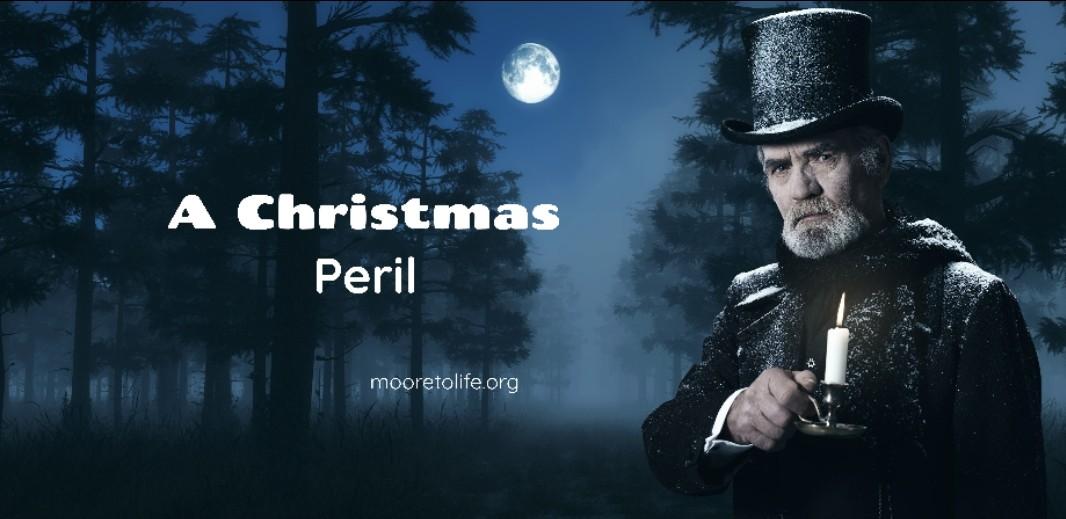
It’s a fascinating time of year. These shorter days and longer nights give us the perfect context in which to think about how our amazing God keeps things alive – even when you and I see no evidence of life. God does it with varieties of plants and grasses like you find here on the golf courses in Middle Tennessee. We know that what now looks brown will soon look lush and green. It’s a divine promise as old as Genesis 8:22. And God does it with certain intriguing animals that He has made, like the Alaskan Brown Bears which roam much farther to our north. In fact, that particular species has been designed by our Creator to hibernate for up to eight months.
Friends, there is wonder in the things that we can see, and there’s even more wonder in the things that we can’t see. Today what I’m encouraging you to do is to simply consider the always wonderful, though sometimes mysterious, ways of our God. Winter is our annual reminder that there’s more going on in God’s world than meets the eye.
Here’s what I mean. In winter, there is plenty of life, but much of it is below the surface. It’s invisible, at least in large measure. That hibernating bear may appear to us to be sleeping, but he is very much alive!
Some seasons of our spiritual lives feel very wintry, if you will allow me to apply that same term. Maybe it feels like a long time since we really saw God working or moving in tangible ways. Maybe we don’t feel as passionate or motivated to worship (or pray, or study, or share the gospel) like we have at other times. Maybe we aren’t sensing our purpose or mission with the clarity or urgency that we desire. Or maybe we’re struggling simply to find the joy in Christ that we once knew. For the human soul, such wintry seasons can be exceptionally trying. But, when we find ourselves in one of those places, you and I can remind ourselves that we are in very good company.
What was it like for Noah to wait decades for rain, not really even sure what he was waiting for? What was it like for falsely-accused Joseph, forsaken by his brothers and now forgotten by his friends, to languish in prison? What was it like for God’s people, without any new word from the Lord for 400 years, to try to hold onto some shred of hope?
Sooner or later, spiritually wintry seasons happen to all of us. They are part of our growth in grace. They help us let go of earthly comforts, and they help us cling more tightly to the only One who can grant us the security for which we long. Even in our questioning and uncertainty, we’re learning to trust our God. I don’t have to tell you that this is not an easy leg of our journey.
Wintry seasons also help us learn to love more fully. In the long nights, we learn (albeit slowly) to love God with more of our whole selves. We also learn to love others more sincerely. We would not learn these critical lessons if every season of our lives felt as easy-breezy as a summer vacation at our favorite beach. What I want you to see is that spiritually wintry seasons are not sinister plots by God to rob us of life’s pleasures, but they in fact lie at the very heart of all of the best things that He is accomplishing in us. We may feel like we’re stuck in some sort of spiritual hibernation, but we can rest assured that every follower of Christ – everyone who is “in Christ” – is always very much alive! Our life comes from the Vine – from the Head of the body – and He is very much alive and well!
If you’re interested in reading further, I’ll offer just a few simple suggestions to help you make the most of a spiritually wintry season …
1. Write down your thoughts. All of them. As you put pen to paper, you’ll have more insight into what God may be doing in you right now.
2. Tell God about all your wintry feelings. Admittedly, you’re not giving Him any new information, but I think you’ll find it helpful to know that He is aware of what you’re feeling (or not feeling) right now.
3. Share your wintry feelings with a trusted friend. I can almost guarantee you that your friend will be able to relate to you on this subject. This will deepen your relationship, and it will make your load feel a little lighter.
4. Pay attention to your physical health. Don’t forget that God has made us body, soul, and spirit. We can’t neglect any part of us and expect positive results. The start of new year – it’s five days away – is a great time to initiate and nurture a new healthy habit. (For me, I’m drinking more water than ever before, flavored with a little lemon when possible, and I’ve nearly forsaken the habitual Diet Cokes.)
5. Read and pray the Psalms. Say the words out loud. Use God’s hymnal to speak words of praise even if you’re not feeling it at the moment. Sometimes our feelings follow our having done the right thing – and giving praise to God is always the right thing.
6. Confess any unforgiveness that may be trapped inside you. That person who wounded you – do your best to let it go. The Lord knows all about it. In the end, you can trust Him to administer perfect justice. By the way, aren’t you glad that Jesus came to give us grace and not just justice?
7. Even if it’s cold outside, get out and take a long walk. Do it regularly. As you walk, look around carefully. Even in the dead of winter, you will see signs of life that you hadn’t noticed before, and this will bring nourishing light to your soul.
Wintry feelings may abound for you right now, but God’s got this. He is Lord of every season. He is faithful, and good, and here.
Pastor Charles










Recent Comments